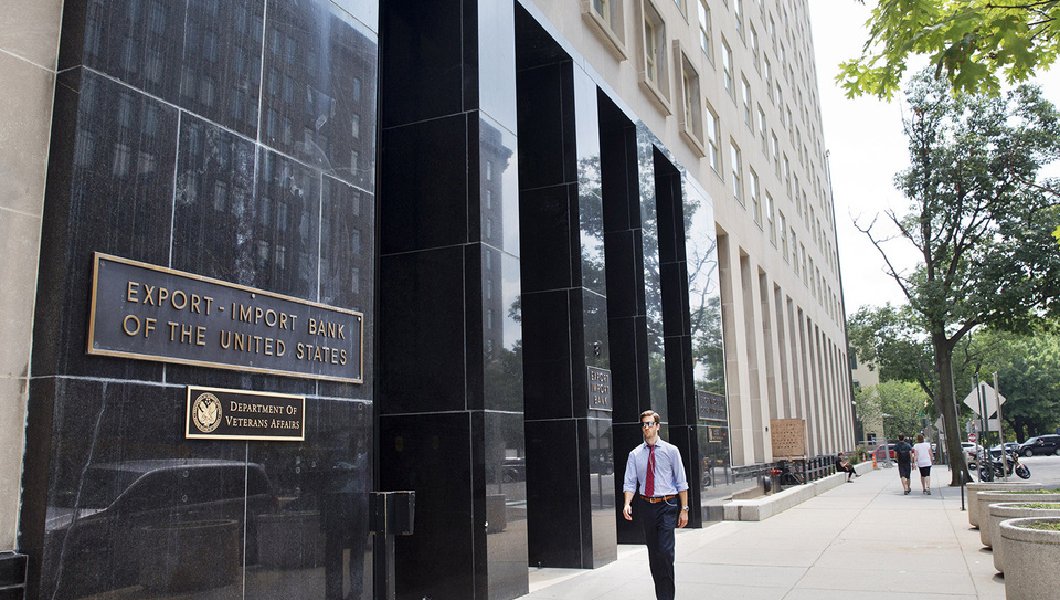- Blog
- Sustainable Economic Systems
- International Sustainable Finance
- Senators, don’t put Ex-Im Bank’s fossil fuel financing back in business
Senators, don’t put Ex-Im Bank’s fossil fuel financing back in business

Donate Now!
Your contribution will benefit Friends of the Earth.
Stay Informed
Thanks for your interest in Friends of the Earth. You can find information about us and get in touch the following ways:
by Kate DeAngelis, international policy analyst
Originally posted in The Hill.
After providing almost $6 billion annually to fossil fuels from 2013 to 2015, the U.S. export credit agency – the U.S. Export-Import Bank (Ex-Im) – has been unable to finance large fossil fuel projects for the past two years.
But that could change this Wednesday, when the Senate Banking Committee holds hearings on Trump’s nominees to Ex-Im. Though the Senate reauthorized Ex-Im in 2015, it has not voted to approve new members to Ex-Im’s board, thus preventing the quorum required for approving large projects.
The delay has meant that Ex-Im has lacked the ability to vote on controversial projects like a coal plant in Vietnam. With the Senate set to consider these nominees, their approval could allow Ex-Im to spend hundreds of millions, if not billions, of dollars on dirty fossil fuel projects overseas.
Before the confirmation process begins, we hope the Senate will consider what is at stake for the future of Ex-Im.
Who are the nominees to Ex-Im?
Trump has nominated former New Jersey Congressman Scott Garrett to head Ex-Im. Garrett has managed to alienate vast swaths of the public, which contributed to his failed re-election bid.
He voted against protecting voting rights, against increasing the minimum wage, against unemployment benefits, and in support of lifting a ban on oil and gas drilling off the New Jersey coast. The League of Conservation Voters’ (LCV) scorecard gave Garrett a lifetime environmental voting record of 8 percent, and New Jersey LCV labeled him the “most fervent anti-environmentalist” in the New Jersey delegation.
Garrett is also unabashedly anti-gay. For example, he refused to pay duesto the National Republican Congressional Committee because the organization supported some gay candidates.
President Trump’s other nominees include Spencer Bachus and Kimberly Reed. Spencer Bachus, a former Alabama Congressman, faced insider-trading allegations while in Congress. In a first-of-its-kind case involving a member of Congress, the Office of Congressional Ethics opened an investigation into Bachus after deciding there was probable cause for insider-trading violations, including General Electric stock.
Bachus’ Ex-Im financial disclosure forms revealed that he continues to invest in General Electric as well as Exxon – two of the top recipients of Ex-Im financing. This has all the markings of a conflict of interest.
In a 2010 interview, Bachus provided insight into why he might not see anything wrong with these conflicts: “In Washington, the view is that the banks are to be regulated, and my view is that Washington and the regulators are there to serve the banks.”
Finally, Kimberly Reed is making her way back into public office through Washington’s notorious revolving door. During the George W. Bush administration, Reed was a senior Treasury official in the lead-up to the catastrophic 2008 financial crisis. Then before the crisis hit, Reed landed a job as a vice president for Lehman Brothers – one of the first dominos to fall in the financial crisis.
What kind of projects has Ex-Im financed?
Ex-Im provides billions of dollars every year to environmentally dirty projects that harm local communities. The Ex-Im-funded Sasan coal plant and mine in India have resulted in serious environmental harms and the deaths of at least 19 workers due to unsafe working conditions, with a recently disclosed project monitoring report showing six potential additional deaths.
Another 27 people died at Exxon’s Papua New Guinea liquefied natural gas (LNG) project, due to inattention to risks that an Ex-Im Office of Inspector General report had previously noted.
In addition, Ex-Im has provided nearly $5 billion for LNG projects built inside Australia’s Great Barrier Reef, despite it being a highly important coral reef ecosystem and a World Heritage site.
These investments must make Ex-Im a major contributor to climate change. Ex-Im is the third largest supporter of fossil fuels among all G20 countries’ export credit agencies, according to a recent report by Friends of the Earth.
Further, between 2013 and 2015 Ex-Im provided a whopping 60 times more than it provided for clean energy.
Which projects are on Ex-Im’s docket?
If the Senate approves these nominees, Ex-Im could vote on 13 additional fossil fuel projects now under consideration. One such project is the Long Phu 1 coal plant in Vietnam that involves prohibited coal technology, as well as Vietnamese officials that have been fired amidst a corruption investigation.
Another corruption-tinged project is a liquefied natural gas development in northern Mozambique, which has already resulted in the theft and destruction of local community land and will further endanger threatened species and unique ecosystems.
Both of these projects would presumably make Spencer Bachus a happy man, since General Electric would receive support for the Long Phu 1 coal plant while Exxon stands to gain from its involvement in the LNG development in Mozambique.
Approving nominees like Garrett, Bachus and Reed would lead Ex-Im down a path of less oversight and transparency, allowing a few wealthy white people to get richer as poor communities in developing countries suffer. Instead, Ex-Im needs leadership that will phase out all fossil fuels and ensure that developing countries actually benefit from U.S. investments abroad.
